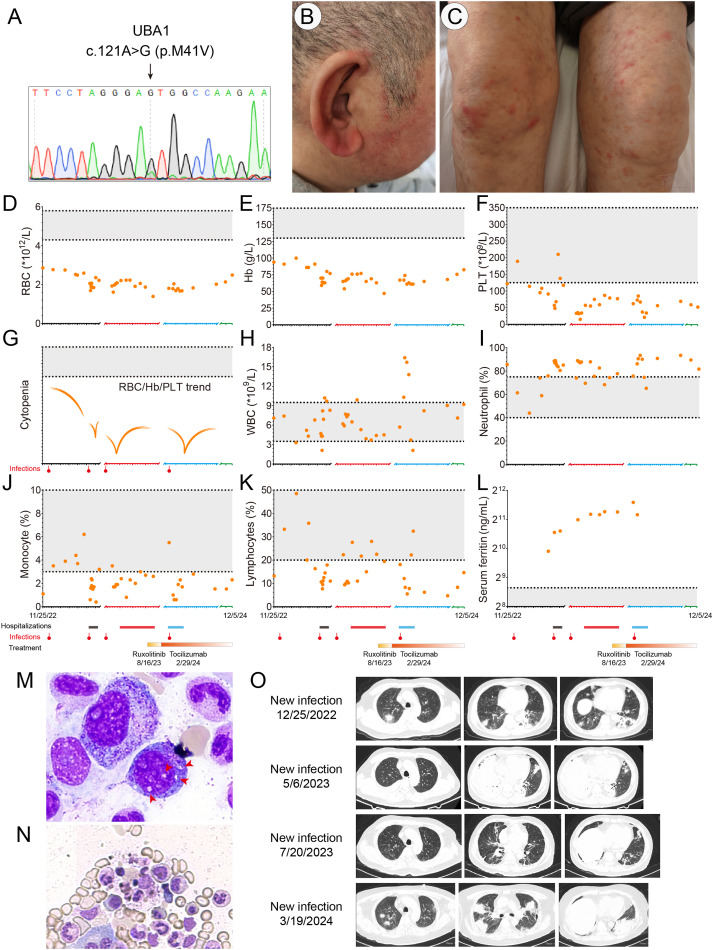
VEXAS syndrome caused by a UBA1 mutation is complicated by recurrent infections leading to hemophagocytic lymphohistiocytosis


VEXAS syndrome (vacuoles, E1 enzyme, X-linked, autoinflammatory, somatic) is an adult-onset and treatment-refractory inflammatory disease, caused by acquired mutations in UBA1 (ubiquitin-like modifier activating enzyme 1), an X-linked gene encoding an E1 enzyme of the ubiquitin-proteasome system.1 The disease occurs predominantly in elderly male patients and has heterogeneous but expanding clinical features that include fever, characteristic vacuoles in hematopoietic precursors, cytopenias, and chondritis. As such, VEXAS patients may be initially diagnosed with relapsing polychondritis, myelodysplastic syndrome, and other syndromes.
